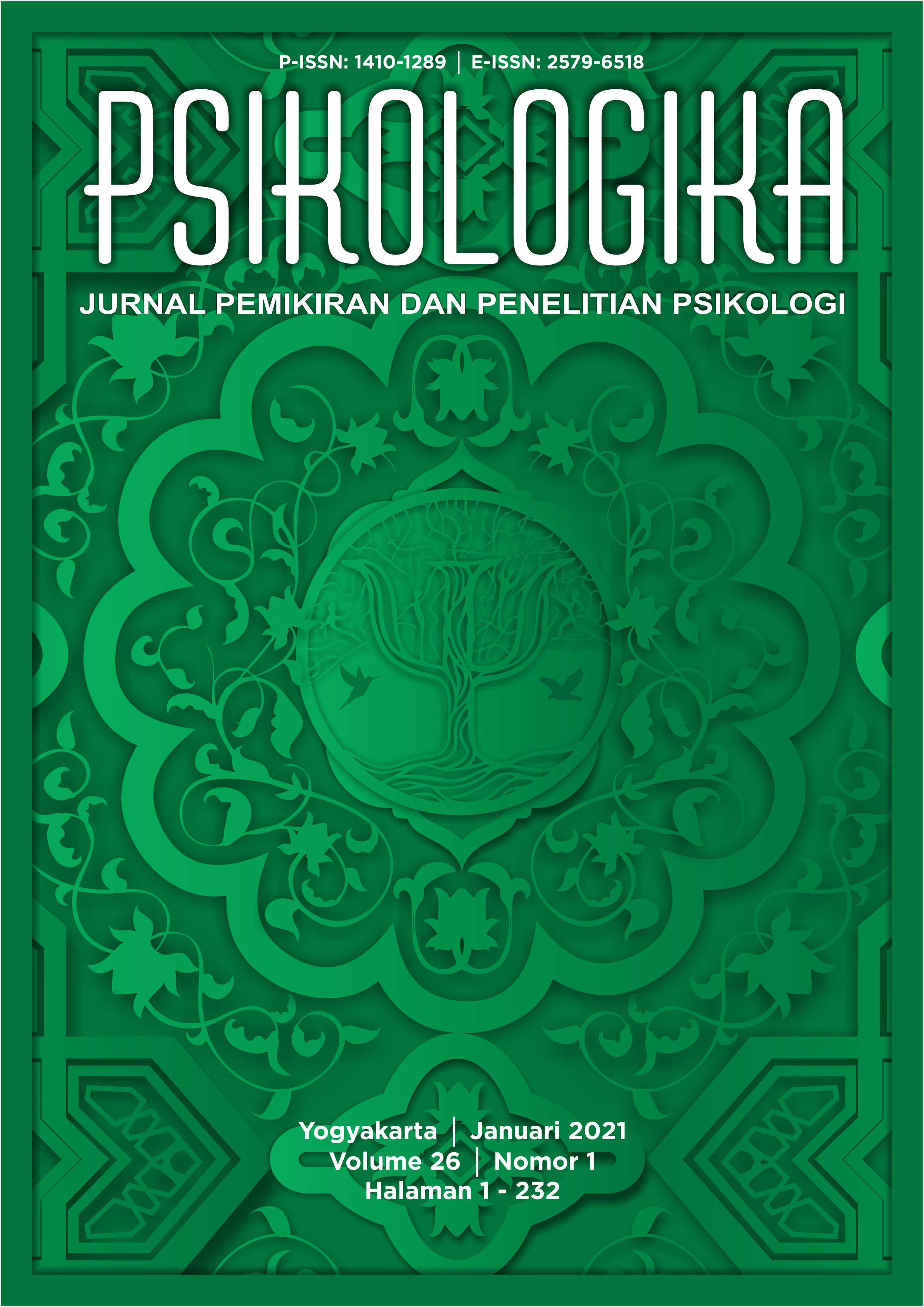Main Article Content
Abstract
Kesejahteraan subjektif merupakan bentuk penilaian dan pandangan terhadap peristiwa dalam hidup yang juga sangat penting bagi anak didik LPKA, mengingat kondisi kehidupan yang mereka alami selama masa binaan cenderung berbeda dibandingkan dengan anak lainnya. Penelitian kesejahteraan subjektif anak didik di LPKA ini dilakukan untuk mendapatkan data terkait kesejahteraan subjektif anak didik LPKA yang dipengaruhi oleh resiliensi dan mengetahui pengaruhnya pada setiap domain. Penelitian dilakukan pada 83 anak didik pada rentang usia dari 12-18 tahun yang berstatus narapidana, dengan menggunakan pendekatan kuantitatif dan metode pengambilan data menggunakan kuesioner Skala Resiliensi hasil pengembangan Reivich dan Shatte (2002) serta alat ukur Kesejahteraan Psikologis Integratif hasil pengembangan Maslihah, et al. (2017). Hasil penelitian menunjukkan bahwa resiliensi diketahui dapat memengaruhi kesejahteraan subjektif anak didik LPKA (p < .05), pengaruh tersebut juga dapat dilihat melalui domain akademik, organisasi, interaksi sosial, serta kegiatan. Kesejahteraan subjektif anak didik LPKA dapat ditingkatkan dengan adanya resiliensi.
Kata Kunci: anak didik, kesejahteraan subjektif, Lembaga Pembinaaan Khusus Anak (LPKA), resiliensi
Resilience and Subjective Well-Being among Imprisoned Children
Abstract
Subjective well-being is a form of evaluation and reflection towards life events which are also very important for imprisoned children in Lembaga Pembinaan Khusus Anak (LPKA, a special jail for imprisoned children), since they had a different life from the ordinary children. Research of subjective wellbeing on child prisoners aims to gather data about subjective wellbeing of child prisoners in LPKA by resilience and to know the effect on each domains. The research involves 83 child prisoners in an age range of 12-18. This quantitative research uses Resilience Scale questionnaire by Reivich and Shatte (2002) and Integrative Psychological WellBeing Measurements by Maslihah et al. (2017). It Points out that resilience significantly affects subjective wellbeing (p < .05), in many aspects such as academic, organization, association, and activity. Subjective Wellbeing in child prisoners can be improved by the resilience.
Keywords: child prisoners, Lembaga Pembinaan Khusus Anak, resilience, subjective well being
Article Details
Authors who publish with this journal agree to the following terms:
- Authors retain copyright and grant the journal right of first publication with the work simultaneously licensed under a Creative Commons Attribution-ShareAlike 4.0 International License that allows others to share the work with an acknowledgment of the work's authorship and initial publication in this journal.
- Authors are able to enter into separate, additional contractual arrangements for the non-exclusive distribution of the journal's published version of the work (e.g., post it to an institutional repository or publish it in a book), with an acknowledgment of its initial publication in this journal.
- Authors are permitted and encouraged to post their work online (e.g., in institutional repositories or on their website) prior to and during the submission process, as it can lead to productive exchanges, as well as earlier and greater citation of published work (See The Effect of Open Access).




